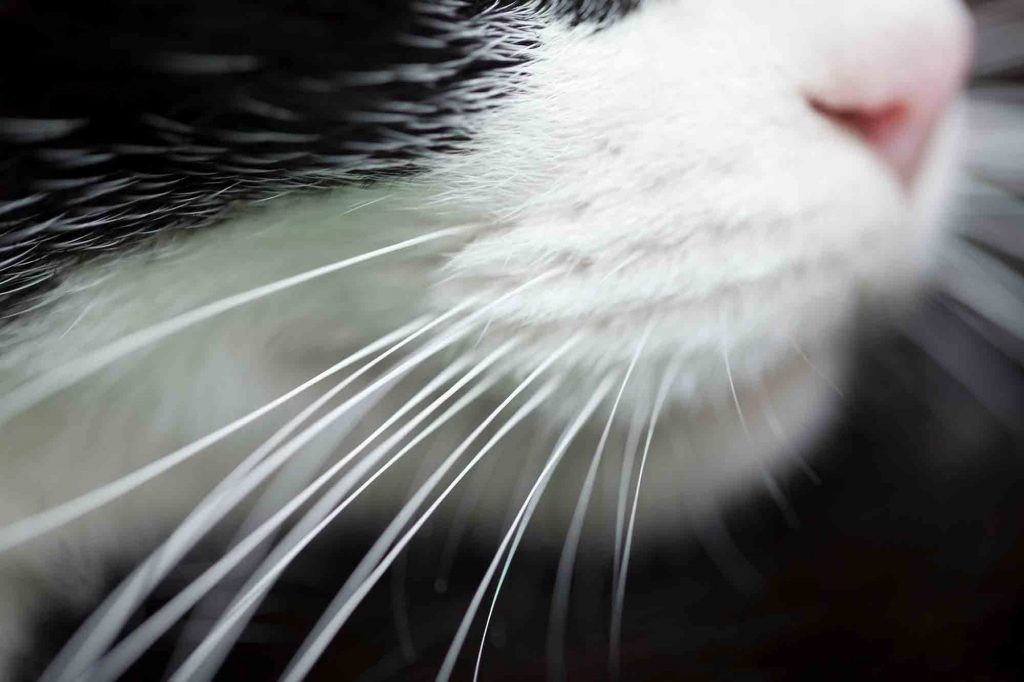 Some days you have to wonder if certain syndromes and ailments are manufactured by the media and pharmaceutical companies. From the start, products such as mouthwash can be marketed in a way to make us think that a little morning breath is an actual medical problem.
Some days you have to wonder if certain syndromes and ailments are manufactured by the media and pharmaceutical companies. From the start, products such as mouthwash can be marketed in a way to make us think that a little morning breath is an actual medical problem.
These misconceptions branch beyond the human world and into the animal realm as well. One of the newer players in the wonderful world of veterinary pseudo-problems is whisker fatigue in cats. Read on to learn whether your veterinarians as West Park Animals Hospital think this one is a real problem or really far-fetched.
The Mighty Whisker
A cat’s whiskers are a very powerful thing. We have come to understand that they are more than just hair. Rather they are very sensitive, highly specialized organs.
The scientific term for your cat’s whiskers are vibrissae, and you can find them on your cat’s muzzle, lower limbs, and above the eyes. These very thick, long hairs contain large number of nerve endings, making them extremely sensitive to the world around them.
Vibrissae serve several important functions including:
- Getting an idea of the overall size, shape, and texture of an object even in dim lighting, which is helpful for a mostly nocturnal hunter
- Helping a cat determine the size of an area
- Helping to gauge distance for jumping
- Detecting changes in air currents
- Helping position of prey for accurate bites
- Eliciting a blink reflex to protect the eyes
- Communication
Our feline friends depend on their whiskers to navigate the world around them, making them one of the most important organs your cat possesses.
The Verdict on Whisker Fatigue
If you have been seeing the term whisker fatigue floating around, you are not alone. There are currently several companies out there marketing products to help alleviate this condition. But what on Earth is whisker fatigue?
Whisker fatigue in cats has been described as an overstimulation of these sensitive little hairs. An inundation of information can lead to a stressed kitty cat, and thus the ailment called whisker fatigue. This can happen in our house cats when the vibrissae are continuously stimulated by things like the sides of food and water bowls.
So is whisker fatigue a real thing or just some gimmick to talk you into buying a new set of bowls for your pet? Overstimulation of your cat’s whiskers is likely troublesome to some cats and can be a source of stress.
Whisker fatigue in cats, however, is not an actual disease or condition. A cat who exhibits signs of being reluctant to eat or drink should always be examined to be sure nothing else is going on. Call us right away if your pet is showing odd behaviors.
Cats tend to experience some stress due to us asking them to go against their very nature and act like indoor pack animals. Feeding in a more natural manner rather than from a bowl is just one way we can help to decrease environmental stress for our finicky felines.
Look for free flowing water fountains that do not force cats to lower their head into a small area to drink. Shallow, wide dishes make ideal eating surfaces, but don’t feel that you need an expensive dish to keep your cat happy. Many suitable options are available.
Cats can be crazy creatures, but when you try to look at their behaviors from an evolutionary standpoint, they make a lot more sense. Whisker fatigue may be an issue in some cats, however there are many other things that you can do to help your feline family member fit in purrfectly.
The post My back, my neck, my… Whiskers? All About Whisker Fatigue in Cats appeared first on West Park Animal Hospital Blog.

